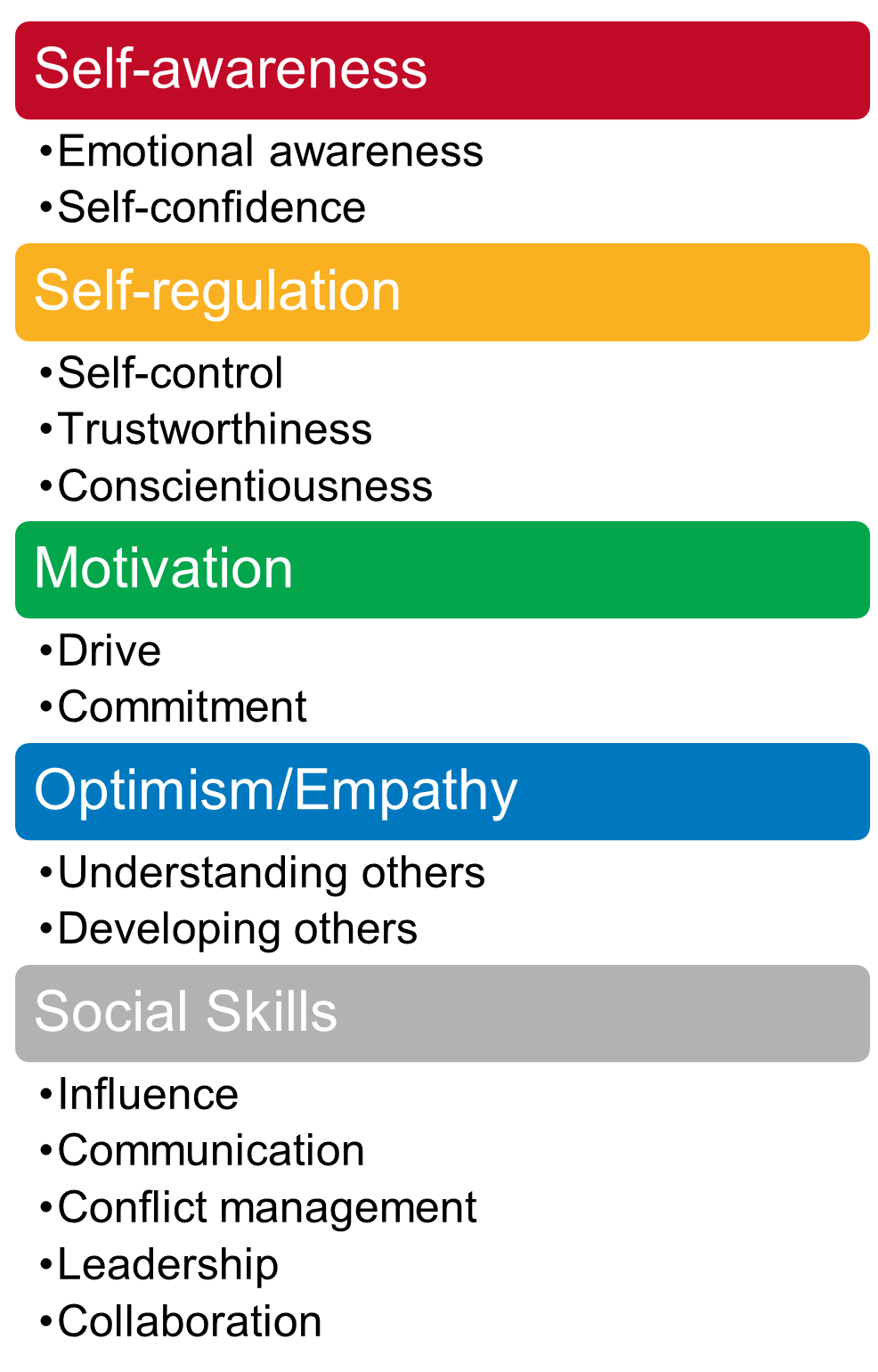Understanding emotional intelligence in leadership

An introduction to the concept of emotional intelligence and the role it can play in leadership.
Most people will have heard of IQ (intelligence quotient), the measure of intellectual intelligence by way of a series of tests which produces a score. In the 1990s psychologist Daniel Goleman created EQ (emotional quotient) which measures a person’s emotional intelligence and their ability to recognise and manage emotions.
Emotional intelligence is the ability to recognise your own emotions and those of others around you in a variety of settings; it’s the ability to differentiate between different feelings and identify what they are.
Emotional information and leadership
As a leader, you can use emotional information to guide your thinking and behaviour. It allows you to manage or adjust your emotions to different environments or situations, which is particularly effective for setting and achieving goals.
In a leadership setting, emotional intelligence is essential for success. It allows you to stay clam under pressure, assess a situation and keep control.
It is also important to acknowledge the difference between responding appropriately in a considered and rational manner compared to reacting in the moment based on emotion.
When developing and strengthening emotional intelligence, it is reasonable to expect emotional leakage, where emotions spill out despite best efforts to remain in control and calm, but with practice you will be able to keep strengthening emotional intelligence.
Goleman’s five components of emotional intelligence
The Goleman model outlines the five key areas of emotional intelligence:

Self-awareness
Those who are self-aware understand their emotions and how they feel, and understand how emotions and actions can affect other people.
Being able to understand your own strengths and weaknesses is key, along with being humble in the knowledge that you can develop others to support a common goal.
You can improve self-awareness by keeping a log of your thoughts and feelings and reflect on these during a quiet moment.
You can also slow the pace and reflect – useful during times that are pressured or where emotions are strong (such as anger or fear).
The key to this is identifying where you react to situations emotionally and where you take time to respond appropriately.
Self-regulation
If you can self-regulate you are able to take a more considered approach, where you are less likely to make rushed decisions, stereotype people or compromise values. Being able to self-regulate is about having the ability to be in control.
Goleman describes this as leadership flexibility and commitment to personal accountability.
You can improve self-regulation by understanding your own values and what is important to you and keeping firm to where you aren’t willing to compromise.
If you tend to blame others when something goes wrong, take a decision to stop doing this and reflect on the situation, and where you have made a mistake, face up to it. In doing so, you will earn the respect of those around you - they will acknowledge that it is a strength not only to admit a weakness but also to show that you are learning from it.
When you are in a challenging situation, practice remaining calm, be acutely aware of how you act and behave. If you feel anger, frustration or inequity, practice writing down how you feel. You don’t need to show your notes to anyone but you can refer back to them later in order to reflect. You can also use that moment of calm to challenge your initial emotions and reactions.
Motivation
Leaders who are motivated are working towards their goals with a consistently high standard.
To improve your motivation, you can reflect on what it is that you really love about your career and what direction you want to go in.
You can create a life map or write down your goals and reflect on your five-year plan and decide how you are going to achieve this with a fresh vigor.
Leaders who are motivated are usually optimistic. To practice and help foster an optimistic outlook, every time you have faced a challenge or failed, rather than focusing on the negative, consider instead the lesson learned or the new skills developed.
Empathy
Having a leader who can demonstrate empathy is critical to achieving success, particularly in a team environment.
Putting yourself in someone else’s shoes allows a connection and understanding, and paying attention to body language and tone of voice is fundamental to achieving success with empathy.
This approach will allow a natural response to feeling and understanding the other person’s position.
Social skills
Leaders who are open to change and can demonstrate diplomacy and understanding are usually able to lead by example, setting an standard for others to follow.
This can be practiced by improving communication skills, by proactively seeking feedback, praising others for a job well done and by being open to resolving conflict in a balanced and measured way.
The benefits of higher emotional intelligence
Leaders who demonstrate higher emotional intelligence are open to a range of benefits, including:
- They find it easier to form and maintain interpersonal relationships and in group situations
- They are better able to understand their own psychological state and help manage stress more effectively
- they are better able to focus on goals and objectives.
The more a leader manages each of these areas, the stronger their emotional intelligence can be.
With emotional intelligence, leaders will be better able to understand their emotions and how they can help achieve their goals, by identifying how other people react and respond, which in turn will help create synergies with others.
Overall, keep in mind that for business leaders, understanding emotions is just as important as understanding facts. Take some time to work on your EQ and you’ll reap a range of rewards for you and your team.
